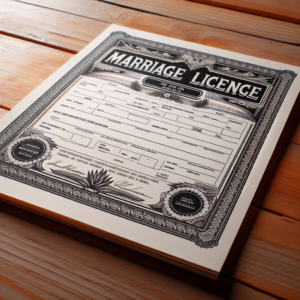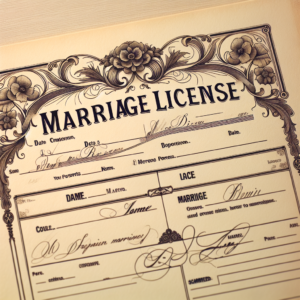Historic Breakthrough: Marriage Equality Advances Transform Lives Worldwide

In a historic moment for human rights, the global movement for marriage equality has achieved significant advancements, transforming lives and communities across the world. As nations increasingly recognize the rights of same-sex couples to marry, the implications of these changes extend far beyond legal recognition. This article explores the recent strides made in marriage equality, the historical context that has shaped this movement, and the profound impact these changes have on individuals and society as a whole.
Understanding Marriage Equality: A Global Perspective on Recent Advances
Marriage equality refers to the legal recognition of same-sex marriages, granting couples the same rights and responsibilities as heterosexual couples. In recent years, numerous countries have made significant strides toward this goal, with landmark rulings and legislative changes paving the way for greater acceptance and inclusion. From the United States to Taiwan, and from Germany to Chile, the movement for marriage equality has gained momentum, reflecting a broader shift toward recognizing LGBTQ+ rights as fundamental human rights. This global perspective highlights not only the legal advancements but also the cultural shifts that accompany them, fostering environments where love and commitment are celebrated regardless of sexual orientation.
The Historical Context: Milestones in the Fight for Marriage Equality
The journey toward marriage equality has been long and arduous, marked by pivotal milestones that have shaped the landscape of LGBTQ+ rights. The early 21st century saw a wave of legal victories, beginning with the Netherlands becoming the first country to legalize same-sex marriage in 2001. This was followed by landmark rulings in countries such as Canada and Spain, which further galvanized the movement. In the United States, the Supreme Court’s decision in Obergefell v. Hodges in 2015 was a watershed moment, affirming the constitutional right to marry for same-sex couples. These milestones not only reflect legal progress but also signify a growing recognition of the dignity and equality of LGBTQ+ individuals, laying the groundwork for future advancements.
Transformative Impact: How Marriage Equality Changes Lives and Communities
The legalization of same-sex marriage has transformative effects on individuals and communities, fostering a sense of belonging and acceptance. For many LGBTQ+ couples, marriage represents a culmination of love and commitment, providing legal protections that are crucial for family stability. Beyond personal relationships, marriage equality contributes to the broader societal fabric by promoting inclusivity and challenging discriminatory norms. Studies have shown that areas with marriage equality experience lower rates of mental health issues among LGBTQ+ individuals, indicating that legal recognition can significantly enhance well-being. Furthermore, the celebration of diverse family structures enriches communities, fostering a culture of acceptance and understanding.
Legal Frameworks: Examining Recent Legislative Changes Worldwide
Recent legislative changes around the globe have been instrumental in advancing marriage equality. Countries such as Switzerland and Costa Rica have recently enacted laws recognizing same-sex marriage, reflecting a growing consensus on the importance of equal rights. In contrast, some nations continue to resist these changes, often citing cultural or religious objections. Legal frameworks play a crucial role in shaping public policy and societal attitudes, and as more countries adopt inclusive laws, the pressure mounts on those lagging behind. The interplay between local laws and international human rights standards underscores the importance of advocacy and legal reform in the ongoing fight for marriage equality.
Societal Shifts: The Role of Public Opinion in Advancing Marriage Equality
Public opinion has been a driving force in the advancement of marriage equality, with shifting attitudes reflecting broader societal changes. In many countries, increasing acceptance of LGBTQ+ individuals has paralleled the push for marriage rights. Polls indicate that a majority of people in several nations now support marriage equality, a stark contrast to attitudes just a few decades ago. This shift can be attributed to increased visibility of LGBTQ+ issues in media, education, and public discourse, which has helped to humanize the struggle for equality. As public support continues to grow, it creates a conducive environment for policymakers to enact change, further solidifying the progress made in the fight for marriage equality.
Future Outlook: Challenges and Opportunities for Marriage Equality Advocacy
Despite the significant strides made in recent years, challenges remain for marriage equality advocates. In some regions, backlash against LGBTQ+ rights has intensified, with attempts to roll back legal protections and promote discriminatory policies. Additionally, the intersectionality of race, gender, and socioeconomic status complicates the landscape, as marginalized groups within the LGBTQ+ community often face compounded discrimination. However, these challenges also present opportunities for advocacy and coalition-building. By fostering alliances with other social justice movements and emphasizing the universal principles of equality and human rights, advocates can continue to push for progress. The future of marriage equality will depend on sustained efforts to educate, mobilize, and engage communities in the ongoing struggle for justice and inclusion.
The advancements in marriage equality represent a significant chapter in the ongoing fight for human rights, reflecting a broader commitment to justice and equality for all individuals, regardless of sexual orientation. As the movement continues to evolve, it is essential to recognize the transformative impact of these changes on individuals and communities worldwide. By understanding the historical context, legal frameworks, and societal shifts that have shaped this movement, we can better appreciate the challenges and opportunities that lie ahead. The journey toward full equality is far from over, but the progress made thus far offers hope and inspiration for future generations.



















